TAQADAM Startup Accelerator funds seven promising startups
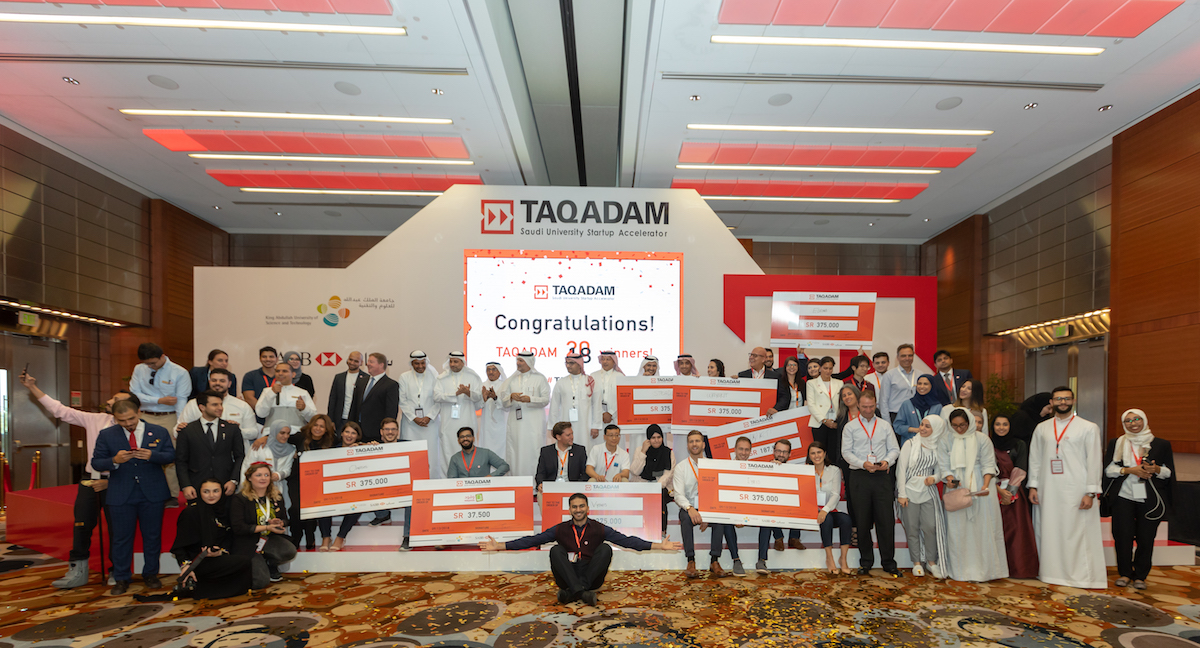
On September 13, 13 startups finalists pitched at the 2018 final TAQADAM Accelerator Showcase on campus. Photo by Asharaf K. AbdulRahman.
-By Annie Parenteau, KAUST News
On September 13 on the University's campus, the excitement and pressure was tangible as 13 startup finalists took to the stage to pitch at the 2018 final TAQADAM Accelerator Showcase. The teams competed for a prize pool of SAR 2.25 million of follow-on funding. The startups were selected as finalists from the 24 startup graduates in the TAQADAM 2018 cohort.
Over the past year, 80 entrepreneurs in 24 teams from 11 universities throughout the Kingdom have been working to launch their companies as part of the TAQADAM Startup Accelerator. Through a partnership between KAUST and SABB, each team received SAR 75,000 in grant funding to jumpstart their ideas and completed an intensive acceleration process that included training in ideation, marketing, fundraising and product design.
As a university-based accelerator, TAQADAM focuses on "deep tech" startups who are seeking to revolutionize existing markets and industry processes. As a result, TAQADAM startups hail from the energy, fintech, biotech, agtech, photonics, robotics, internet of things (IOT), cybersecurity and legal tech industries.
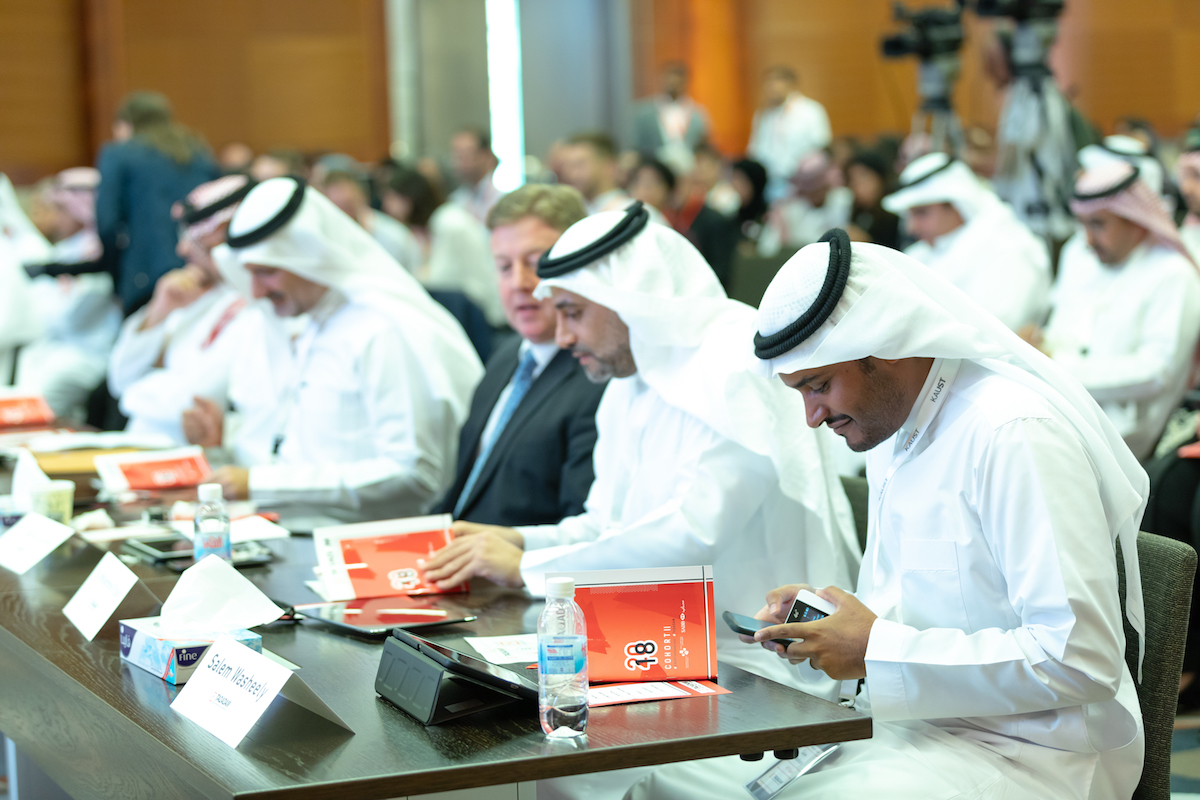
A panel of distinguished judges selected the winning startups at the recent 2018 final TAQADAM Accelerator Showcase on campus. Photo by Asharaf K. AbdulRahman.
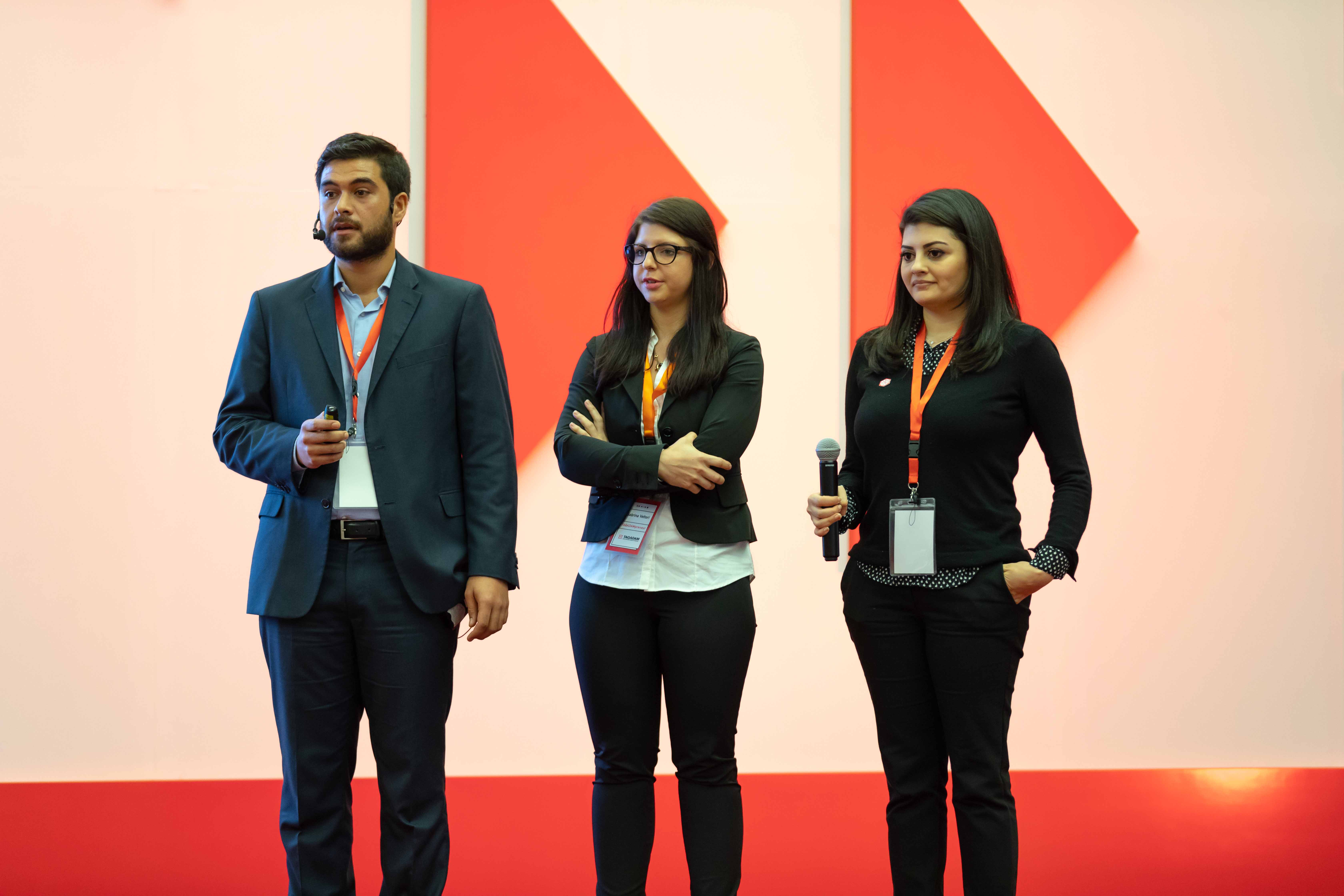
Startup EDAMA Organic Solutions focuses on converting organic waste into soil conditioners adapted to desert climates. (Pictured from left to right:) Mitchell Morton, Sabrina Vettori and Kenana Dahlan. Photo by Asharaf K. AbdulRahman.

The jury choose the winning startups according to their market viability, scalability and profitability after the startups pitched to the audience. Photo by Asharaf K. AbdulRahman.
The 2018 winners are:
Wayakit won the favor of the judges and the audience with an innovative solution for travelers struggling with laundry. Wayakit developed an instant laundry spray that removes stains and smells on garments using patented biotechnology to degrade molecules causing unpleasant odors.
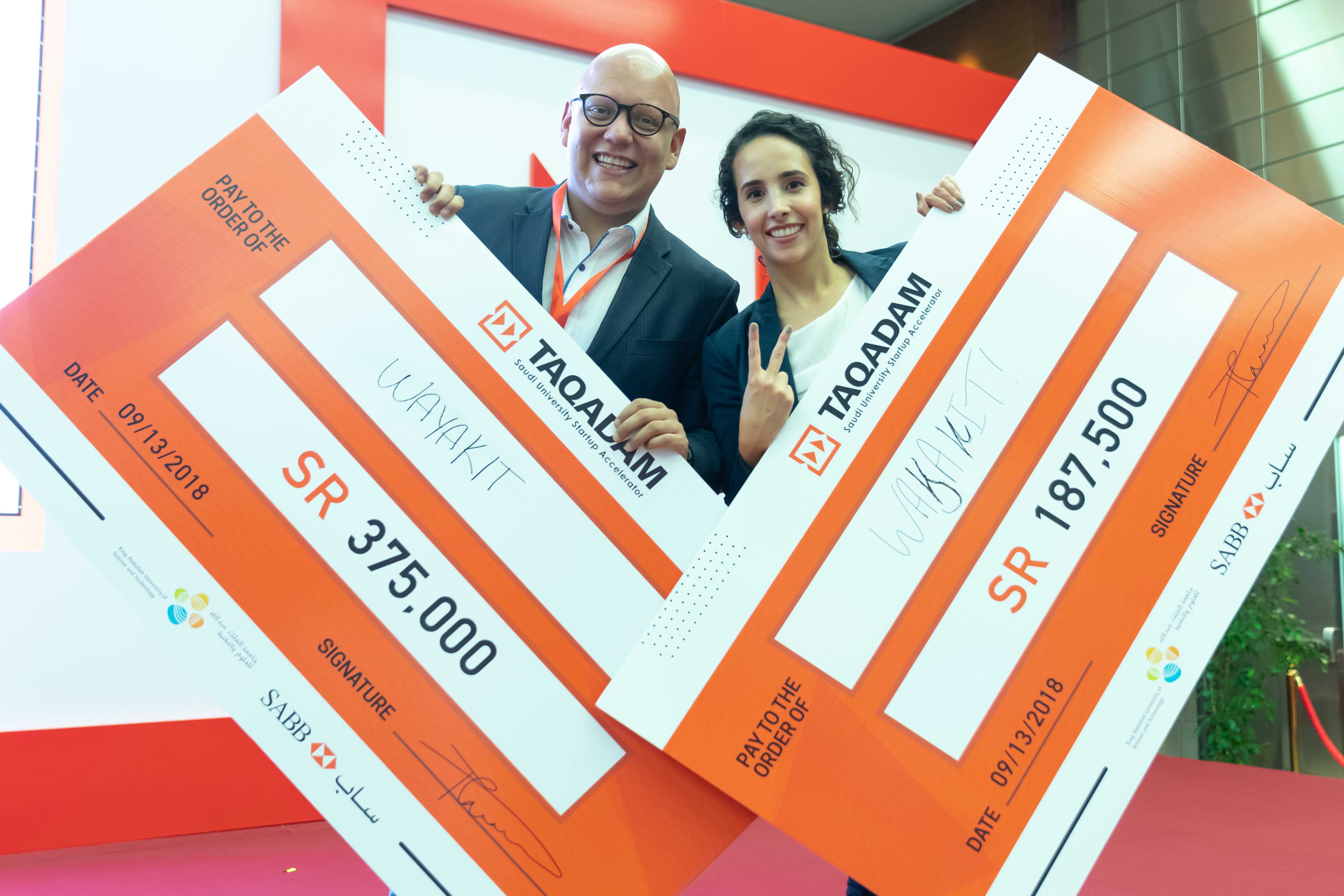
Startup Wayakit features a solution for travelers struggling with laundry—an instant laundry spray that removes stains and smells on garments. (Pictured from left to right:) Mauricio Zavaleta and Sandra Medina. Photo by Asharaf K. AbdulRahman.
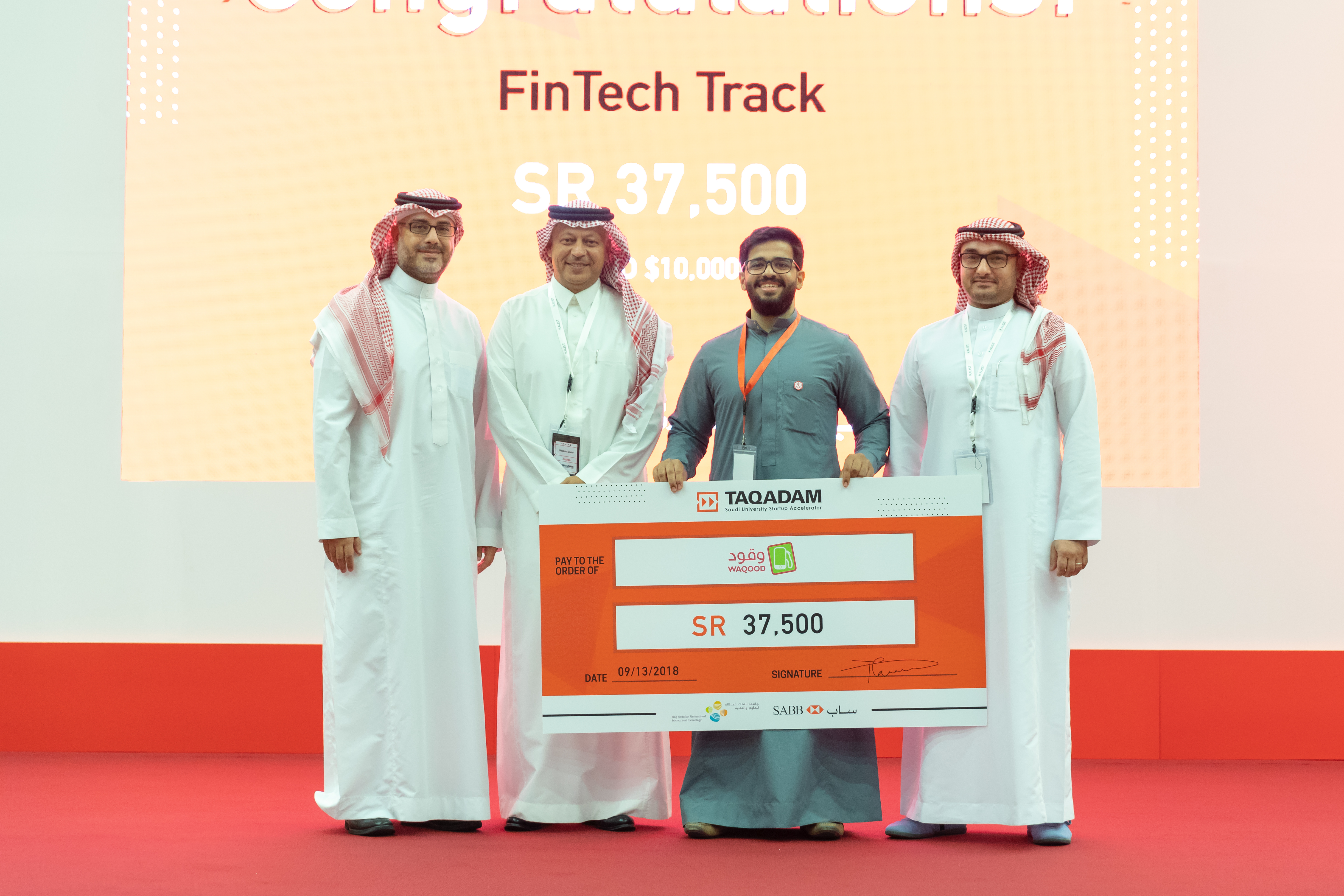
Startup Waqood won the fintech award at the 2018 final TAQADAM Accelerator Showcase on campus. Photo by Asharaf K. AbdulRahman.
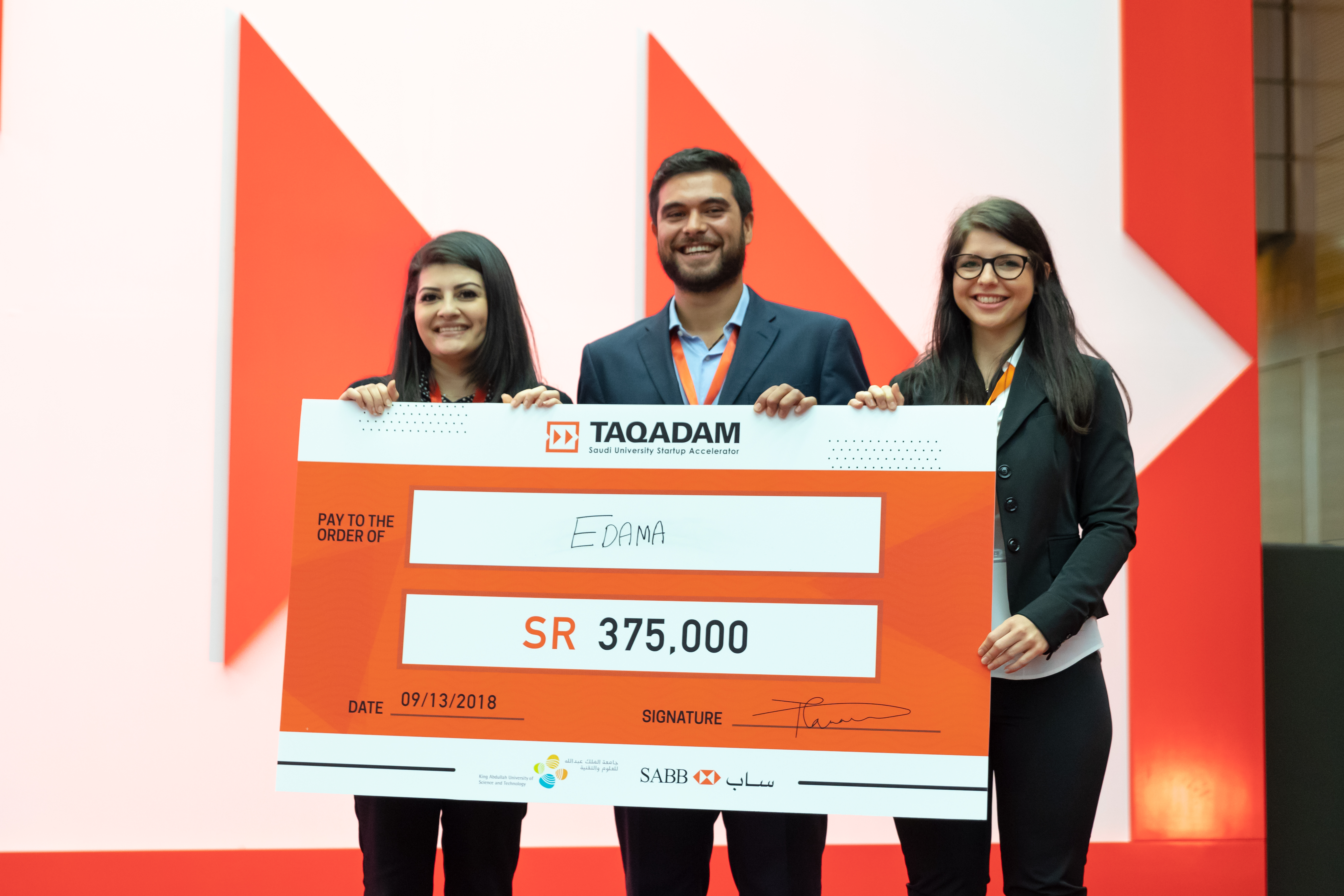
EDAMA Organic Solutions works to help farmers and gardeners to overcome Saudi Arabia’s food and water scarcity issues and reduce environmental hazards from organic waste. (Pictured from left to right:) Kenana Dahlan, Mitchell Morton and Sabrina Vettori. Photo by Asharaf K. AbdulRahman.
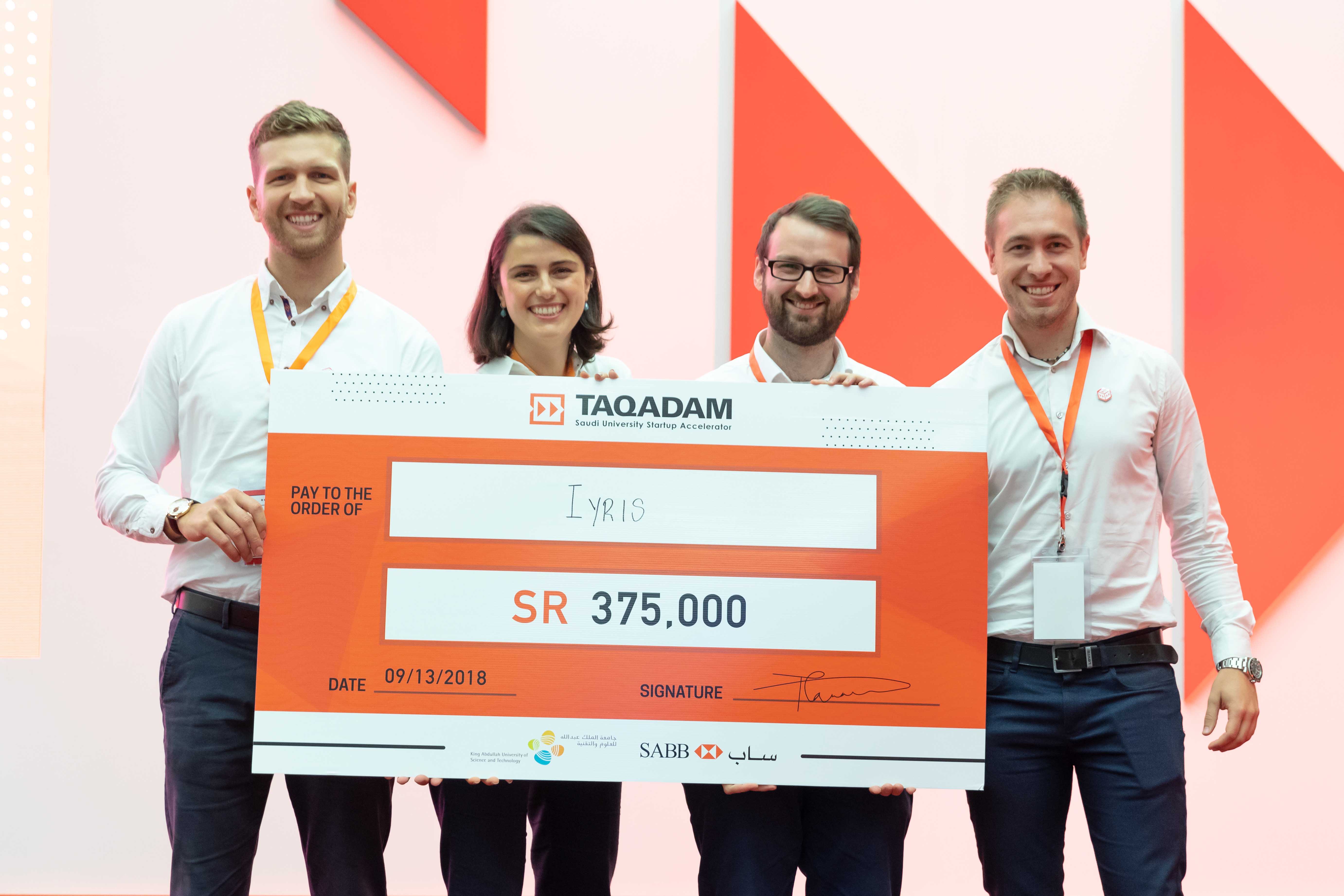
The team behind startup iyris created smart glass transparent solar cells integrated into windows to reduce the electricity consumption of buildings. (Pictured from left to right:) Daniel Bryant, Derya Baran, Joel Troughton and Nicola Gasparini. Photo by Asharaf K. AbdulRahman.
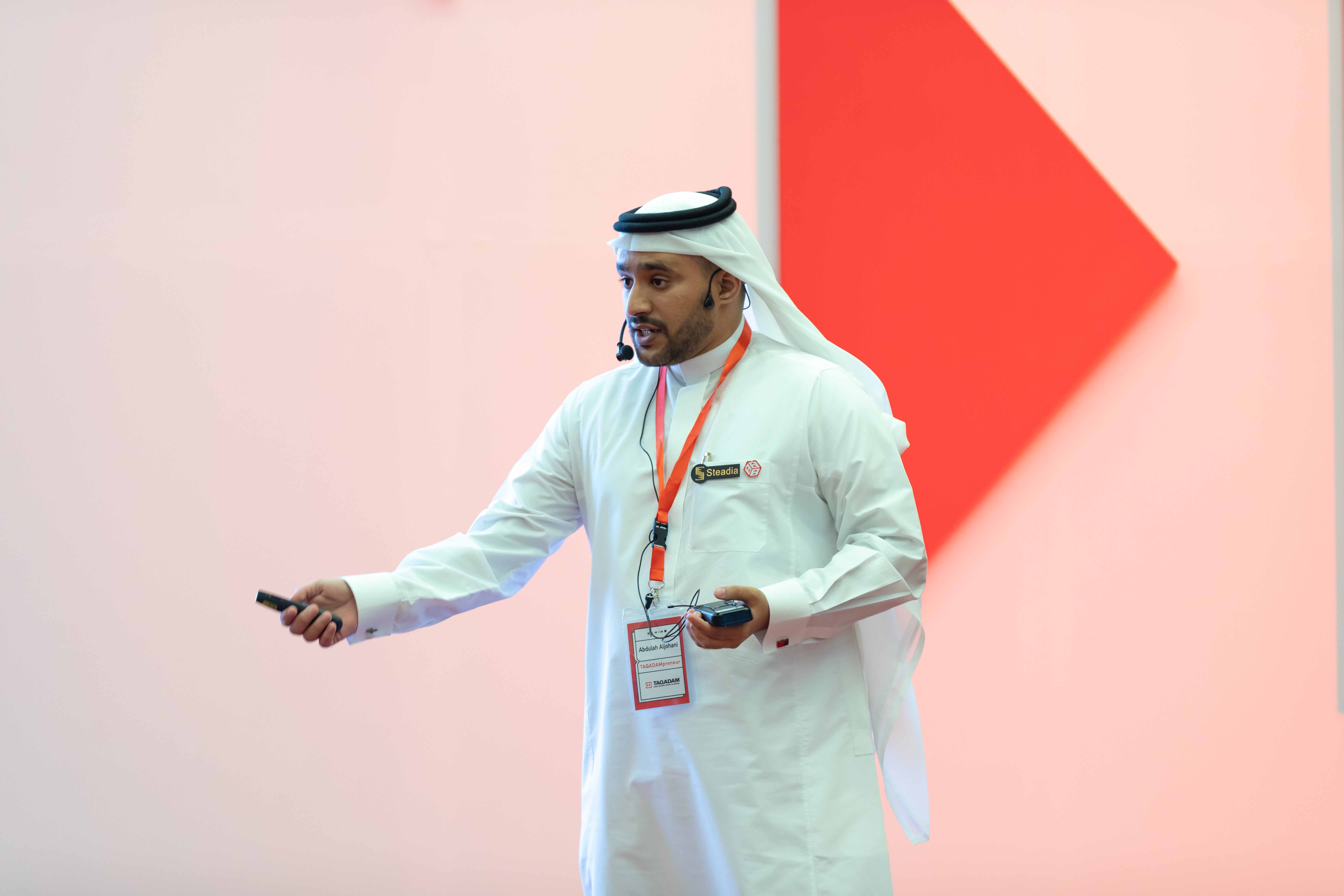
Startup Steadia uses AI to convert existing utility meters into smart devices that track electricity consumption by household. Photo by Asharaf K. AbdulRahman.
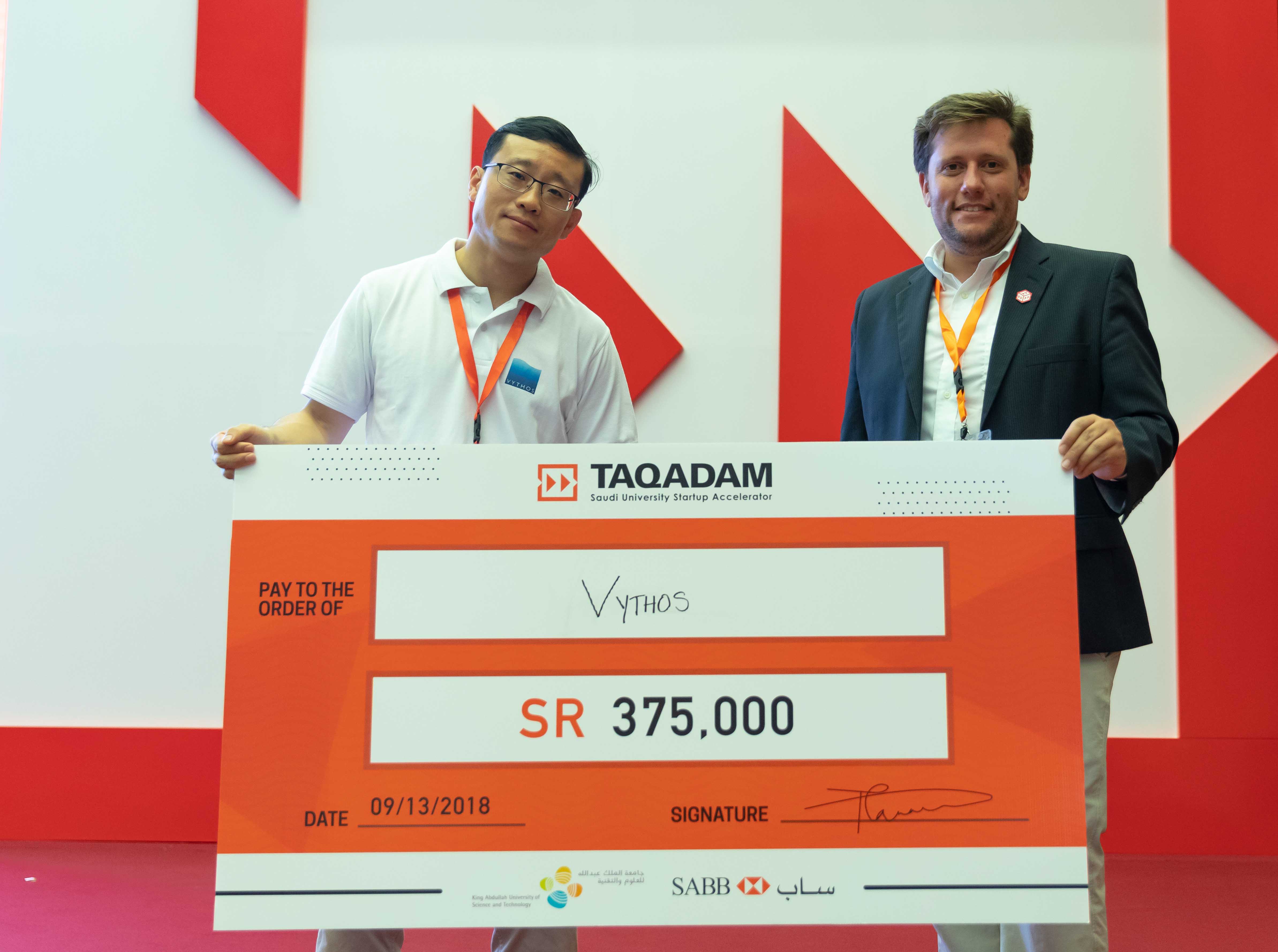
Startup Vythos helps companies, researchers and governments monitor natural and man-made seafloor activities through a cost-effective underwater monitoring system. (Pictured from left to right:) Jiming Jiang and Marco Terzariol. Photo by Asharaf K. AbdulRahman.
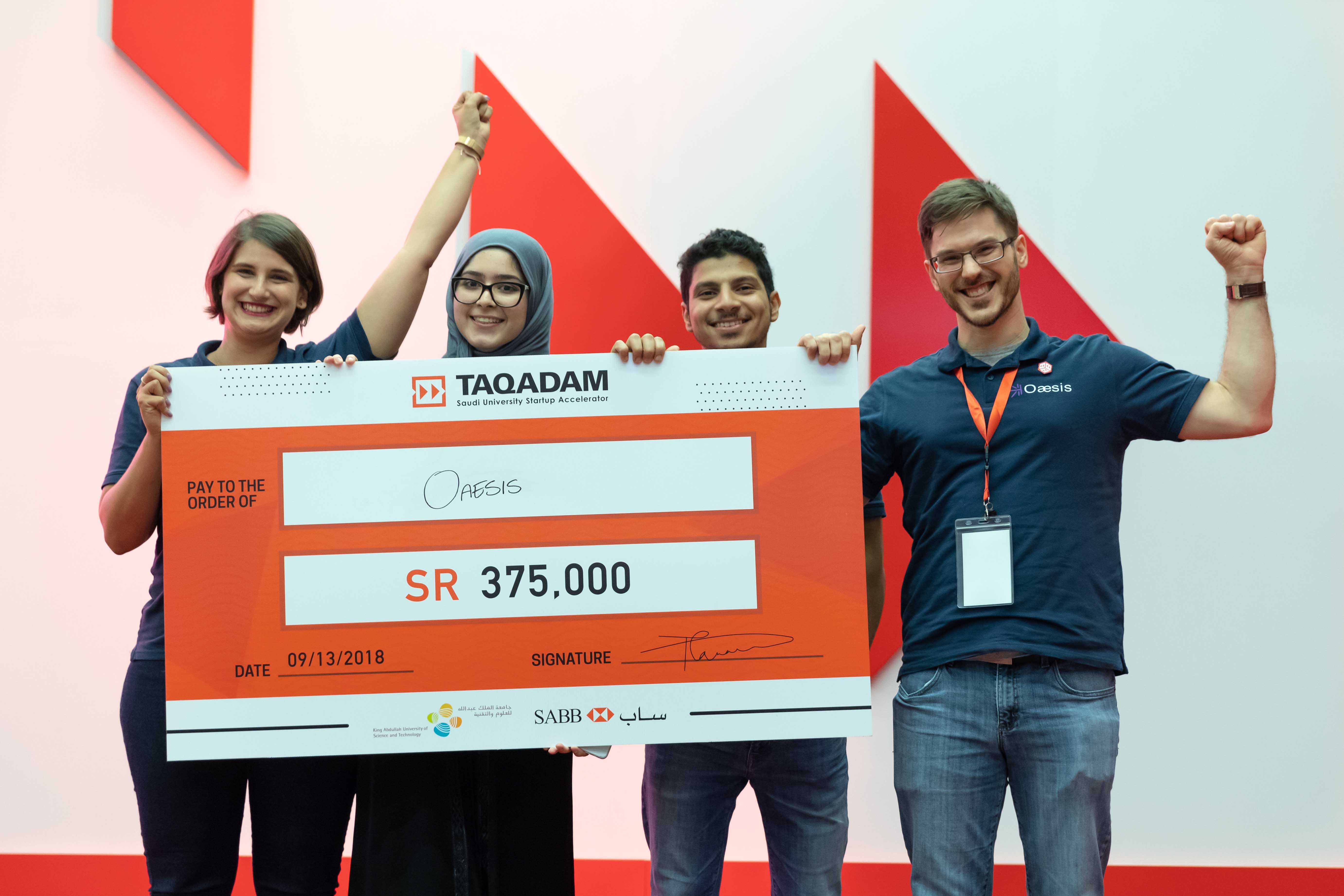
Startup Oaesis features patented laser-based energy-efficient lighting systems for indoor farming. (Pictured from left to right:) Vasiliki Kordopati, Orjwan Zafraani, Hashim Banah and Robert Werfman. Photo by Asharaf K. AbdulRahman.
Related stories:
- KAUST and SABB launch multi-university startup accelerator
- The sky's the limit for FalconViz
- Sadeem: Flood mitigation around the world
- Startup teams chosen for first TAQADAM Accelerator Cohort
- Igniting biotech at KAUST
-
STEAM boosts entrepreneurial capacity

